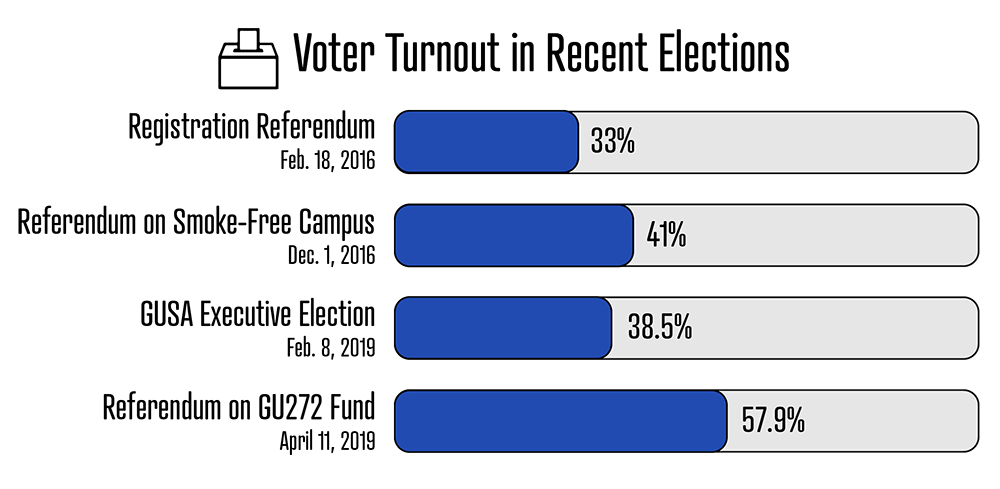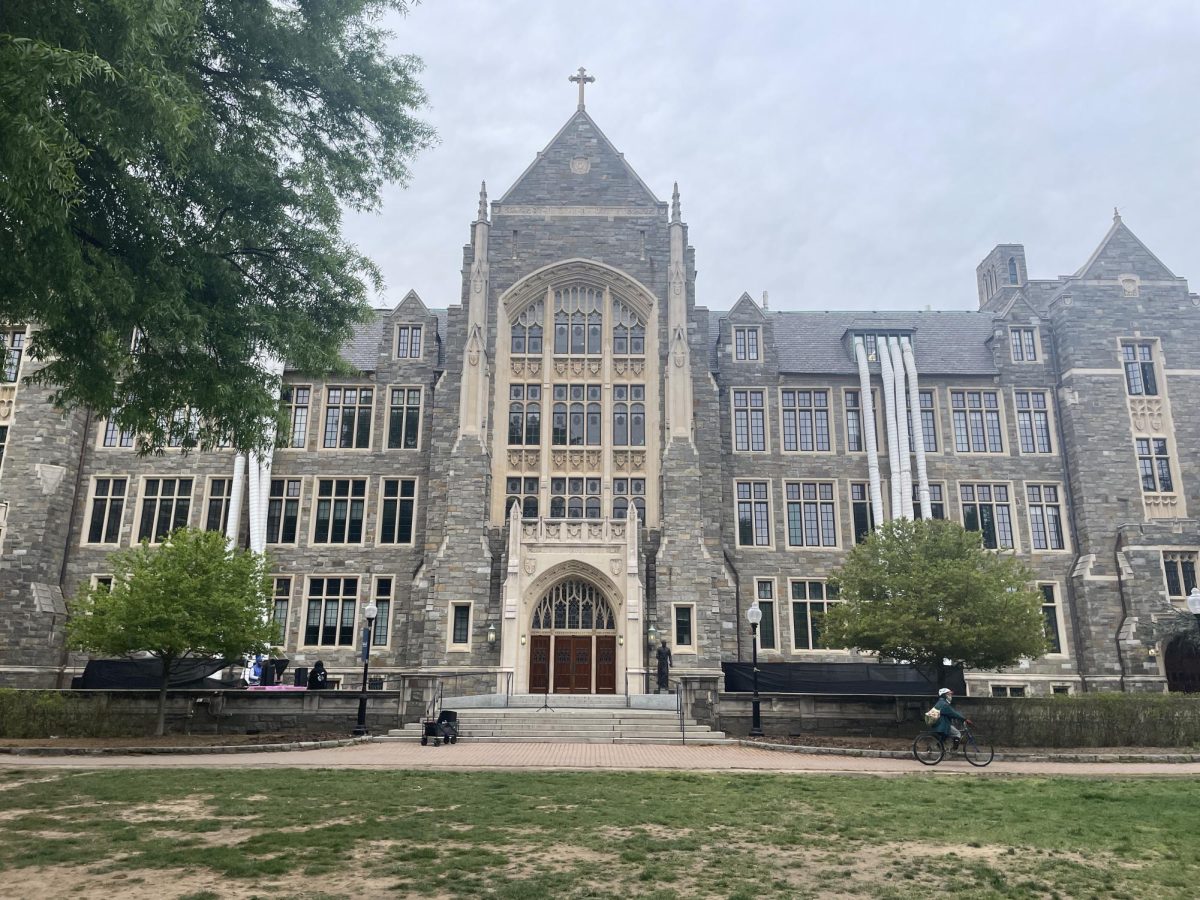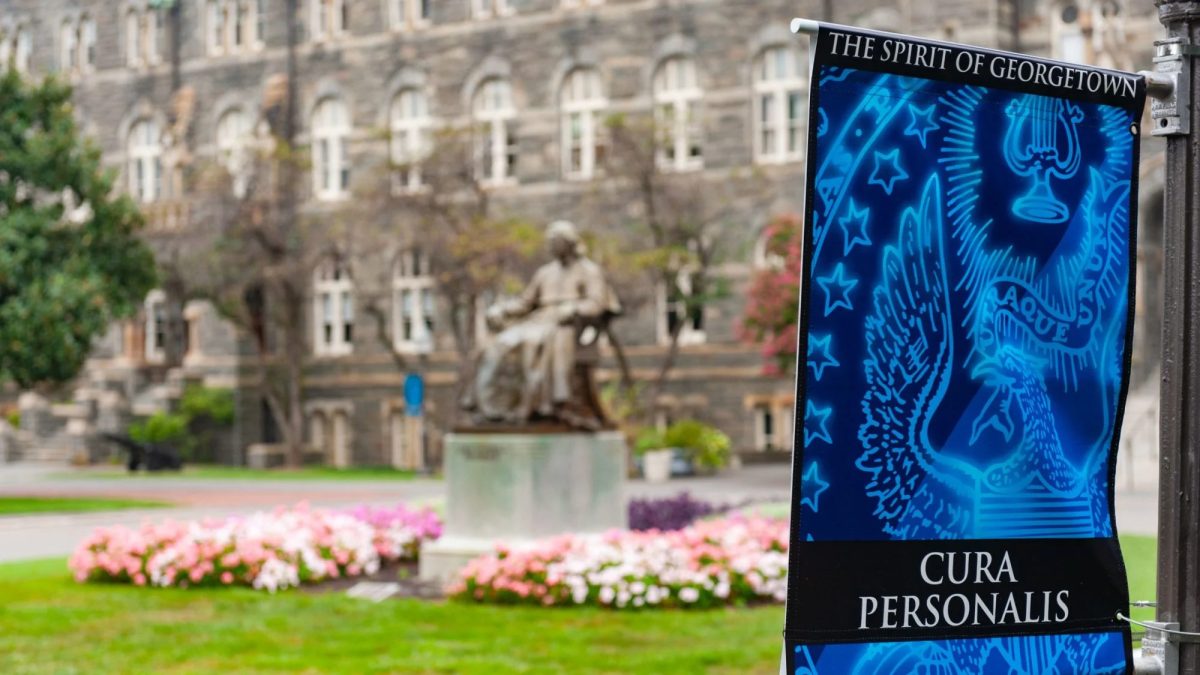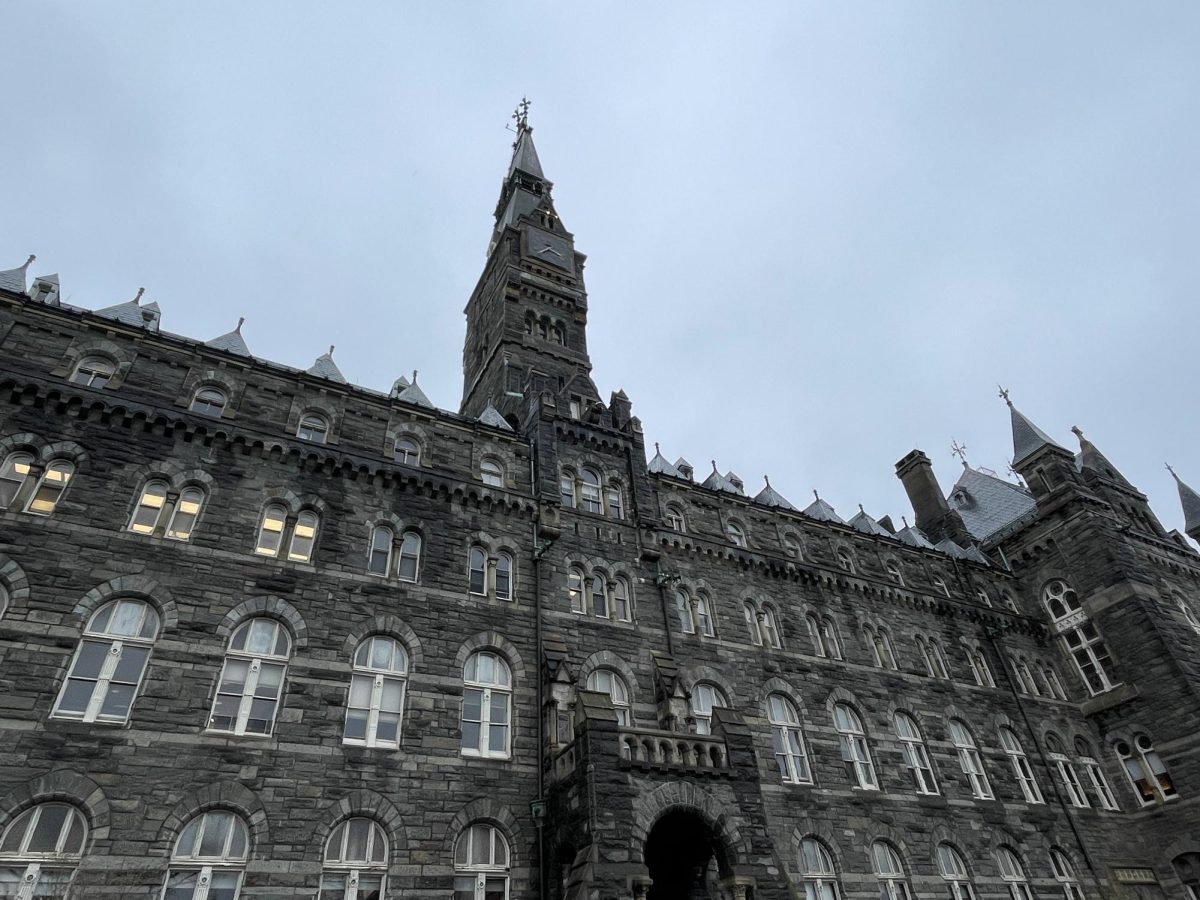More than 57 percent of the student body voted in the Georgetown University Student Association senate elections Thursday. Eighteen senators, twelve of whom are serving for the first time, were elected in the GUSA senate elections April 11.
The senate election saw a record voter turnout, which two re-elected GUSA senators attribute to the election coinciding with a referendum on a semesterly fee to go toward a fund to benefit the descendants of the GU272. Six rising seniors, six rising juniors and six rising sophomores were elected in Thursday’s vote.
Without the referendum, voter turnout would have not have reached this year’s record high, according to re-elected GUSA Senator Harrison Nugent (SFS ’20).

“No question it had to have been the referendum. I know we’ve had referendums in the past that have been used as a tool to get turnout to increase, but nothing like this election,” Nugent said. “Clearly the referendum surrounding reparations and the GU272 really inspired a lot of debate on campus and really brought people to the polls.”
The turnout breaks a previous record for the 2013 executive election’s 57 percent voter turnout, according to Justin Rich (SFS ’22), recently appointed chair of the GUSA Election Commission.
“We are pleased to see a high turnout this election season,” Rich said. “As you know, there was a lot of campaigning and campus media articles surrounding the referendum, so while we don’t definitively know the cause of the high turnout, there was a large presence surrounding the referendum both in the press and around campus.”
This year’s turnout for senate elections, the highest in GUSA history, was 57.9 percent and follows student activism around the GU272 referendum attached to the senate ballot. Students voted to approve a referendum creating a semesterly fee that would go toward a fund to benefit descendants of the GU272, the 272 enslaved individuals sold by the Maryland Province of the Society of Jesus in 1838 to financially sustain the university. A university statement in response to the referendum results did not clarify upcoming steps.
The elections also come after the formation of Abolish GUSA, a movement seeking to replace GUSA with a more efficient and inclusive system of student government. The group began distributing posters across campus Jan. 27 and has since created a Facebook page. Three senate candidates, Alexander Mazzeo (SFS ’22), Christopher Castaldi-Moller (SFS ’21) and Henry Dai (COL ’22) have publicly associated themselves with the Abolish GUSA campaign this election season, though none of them won their senate races.
Abolish GUSA has pointed out areas where GUSA can improve upon in terms of properly using its powers to properly represent students, Nugent said.
“I’ve seen a lot of candidates this year run on an Abolish GUSA platform,” Nugent said. “We’re not doing ourselves any favors with a lot of things we do. People see it sort of as a meaningless institution.”
The emergence of the Abolish GUSA initiative demonstrates the low trust of the student body in GUSA’s ability to make change, according to re-elected senator Leo John Arnett (SFS ’22).
“I think those Abolish GUSA campaigns just prove how low the perception of the organization has gotten in the last years,” Arnett said. “I believe that if anything, it proves that the new senate has to work that much harder to change that perception around for the better.”
The elections filled a seat vacated by Nicolo Ferretti (SFS ’21) who left to take the position of director of university affairs within the executive branch of GUSA.
Another seat that was filled in this election was Sam Appel’s (COL ’20), who resigned from both the senate and as a candidate for the executive race Jan. 28. Despite GUSA bylaws, which call for a special election following a senator’s resignation during a term, the GUSA election commission chose not to hold a special election for Appel’s seat due to tight timing between the resignation and this week’s spring senate elections.
This senate election is the second since the passage of a set of referenda in February 2018 which moved upperclassman senate elections from the fall of the year, in which the senators serve to the spring of the preceding year. The transition chair, transition vice chair and transition finance and appropriations committee liaison for the senate, three positions created by the referenda to serve for the transition period over the summer. In previous years, incoming senators have been appointed in the week following the election.
While the referenda moved the formal upperclassmen senate elections to the spring, the most recent senate elections occurred Sept. 30 to fill three vacant junior seats as well as scheduled freshmen and at-large seats.
The senators elected to represent the Class of 2020 include Juan Martinez (SFS ‘20), Harrison Nugent (SFS ‘20), Jessica Richards (COL ‘20), Matt Buckwald (COL ‘20), Peter Lee Hamilton (COL ‘20) and Miguel Zamudio (COL ‘20).
Elected senators for the Class of 2021 include Natalie Kim (SFS ‘21), Samantha Moreland (MSB ‘21), Sam Dubke (SFS ‘21), Mikail Husain (COL ‘21), Joshua Marin-Mora (SFS ‘21) and Leo Teixeira (COL ’21).
The rising sophomore class representatives include Daniella Sanchez (COL ‘22), Zev Burton (SFS ‘22), Layla Weiss (MSB ‘22), Leo John Arnett (SFS ‘22), Olivia Kleier (SFS ‘22) and Julia Moreno (SFS ’22).
Senators for the incoming class of 2023 will be elected in the fall.
This article has been updated to include the names of all senators voted in during this spring’s election.


















